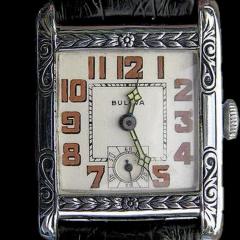-
Recently Browsing
- No registered users viewing this page.
-
Topics
-
Posts
-
By ManSkirtBrew · Posted
As is tradition, one step forward, two steps back. Got the board populated and soldered into place without any issues. But no hum. So I started testing the coils with an ohmmeter. I got 5.84k ohms across D1 (from red to red in the picture below), which is as expected. But I'm getting an open circuit for the other drive coil and feedback coil, D2 and F1 (from green to each of the two yellows). Since the movement was working with my breadboard setup, it implies I somehow broke the connection between the coils and the solder lugs. They're all the way at the bottom of the lugs, but maybe the heat migrated down and broke the connections? I guess it's possible it happened while cleaning the flux off, but I used a soft artist's brush and isopropyl alcohol. I did a lot of high magnification examination, and I don't see any issues, but let me know if you see anything I missed or if you can think of anything else I should check. -
1947 NOS Ambassador 'C'. Actually, the case came without the movement so the movement isn't NOS, but she sure is pretty.
-
By watchweasol · Posted
Hi attached is the AS 20XX. Service sheet although there is no 2063 mentioned it may be of some use to you AS_AS 2060,1,2,6,4,6.pdf -
one of the problems we have is visible versus invisible. For instance millennium disulfide another high pressure lubricant black in color. I was told by somebody worked for the Boeing company that they had a piston like device somewhere that has eight call it around it to grab it so it has to slide and in the collet has to grab. But if somebody puts that type of dry grease on where grease with that in it it embeds itself basically in the metal and they have to throw the whole part away they get use it all. So I suspect on all the dry powdery lubricants that they will go into all the basically microscopic cracks and crannies of the metaland that's where it is visually at least until you scrub it off your visually going to see it which is good because you want your lubrication the stay word is. But I'm sure it doesn't last forever on the metal it's just a really nice lubrication
-
Thanks for the info. I can't seem to find tech sheets for those either. I'll muddle my way though 🙂
-






Recommended Posts
Join the conversation
You can post now and register later. If you have an account, sign in now to post with your account.
Note: Your post will require moderator approval before it will be visible.